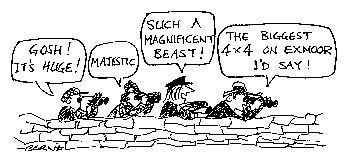In India last week I found myself thinking about Mohandas Gandhi and his famous quote when asked what he thought about western civilisation. ‘I think it would be a good idea,’ he replied.
When I first heard that story — probably about the time of the Richard Attenborough biopic majoring on British colonial oppressiveness like the Amritsar massacre — I don’t doubt I reacted in the way I had been culturally programmed to do. ‘Well, that certainly put us arrogant, colonial Westerners in our place,’ my carefully indoctrinated brain almost certainly went.
And it’s not as though I went through a phase in my life where I imagined the British empire to have been a bad thing. It’s just that in our formative years (Gandhi came out in 1982, when I was 17) there are certain narratives we are taught about the world so confidently and with such unanimity that they achieve the status of unquestionable verities. One concerned the indisputably Mother-Teresa-like saintliness and Mandela-like wisdom of Mahatma Skinny-Nappy-Pants.
Had I grown up in the era of G.A. Henty or H.E. Marshall, these narratives would have involved tales of quintessentially British pluck. And quite right too. You’re hardly going to head from public school to risk being speared to death in the Sudan or to succumb to malaria in some flyblown district of India if you think Henry V was a prisoner-murdering thug or Captain Scott was a prat who deserved what was coming to him because he should have used dogs not ponies.
By the time I was growing up, the imperial sun had all but set. We hadn’t yet reached the parlous state where Florence Nightingale has to be trumped by Mary Seacole for being insufficiently multicultural. But we’d begun our descent of the slippery slope, whereby we had to pay lip service to the idea that the foreigners who dismantled our empire were just as special as the Englishmen (well, Scotsmen, more often) who created it.
So, in matters African you had to pretend that Kwame Nkrumah, Nelson Mandela and even — for many years, believe it or not, but it’s true, I remember the idiocy well — Robert Mugabe were right up there with Cecil Rhodes, Burton, Speke, Livingstone et al. And where India was concerned, you of course had to persuade yourself that Gandhi and the Nehru dynasty were entirely worthy successors to Clive and Wellesley and all those selfless, incorruptible administrators who laid the foundations of the subcontinent’s still-splendid railway system and legal system.
But let’s revisit that famous Gandhi quote in the cold light of rationality and historical evidence and see how it stands up, shall we? OK, so what Gandhi is saying is: ‘Rhetoric, parliamentary democracy, Shakespeare, the light bulb, particle physics, neo-classical architecture, logic, the Linnaean system, opera, sole meunière, fencing, croquet, perspective and J.S. Bach — they’re all really shite.’ Gee Gandhi. Thanks for that insight, worthy of the great Mahmoud Ahmadinejad. Perhaps even Ali G.
All right, I know he was making a ‘joke’-cum-political point but can you imagine the fuss if it had been the other way round? Suppose, say, Lord Curzon had quipped, ‘My dear, with the exception of kedgeree, jodhpurs and the pleasures of tiger-shooting, I’m simply at a loss as to what Johnny Sepoy has contributed to our fair universe.’ Or if Lord Liddle, Governor of Sindh, had jested, ‘Moghuls? Moghuls, the only ones that are any bloody use in my book are the ones a fellow skis around in Wengen.’
But the truly great British in India wouldn’t have said such things, because they would have felt no need. Sure, in the early days — when we were fighting off the French and the Dutch and struggling to gain mastery — we were largely in it for the conquest and the rapine. But not in the Raj’s heyday. We were in it, perhaps more than anything, for love: love of Britain, love of the Empire, love, above all, of India and her people. It’s a love some of us feel just as strongly today.
I know I do. And I don’t just mean the more English than the English Rajputs such as the various Singhs who hosted my family and me in their Rajasthani castles and havelis last week, with their exquisite manners, their endless references to polo, their cousin the maharaja, and their nice concerns as to whether it’s now Mayo or Daly college which best deserves to call itself the ‘Eton of India’.
I mean also the politeness and dignity and helpfulness of the people you meet on the train — on journeys which could so easily be hell if Indians behaved with the boorishness and aggression of their British counterparts. And I mean the quick-thinking entrepreneurship of men like the tuk-tuk driver at Jaipur who, sensing that we’d been brought by a rival to the wrong airport and were in danger of missing our flight, took instant command, rescued us and more than earned his (by local standards) exorbitant £3 cut. And I mean the taxi driver who insisted on detouring via his home so that we could meet his family and be fed delicious chapatis and dhal prepared on the spur of the moment by his wife.
Gandhi was one voice of India, but he wasn’t the voice. Like the grubby, socialistic and hideously corrupt Nehru dynasty which followed, he was a politician, not the ultimate arbiter of rightness and truth. We owe ourselves better than to remember our period in India in terms of reference dictated by chippy lefty types from the School of Oriental and African Studies. Many, perhaps even the majority of Indians, think of us more with affection and pride than bitterness and resentment. And rightly so, for together we made each other great.







Comments